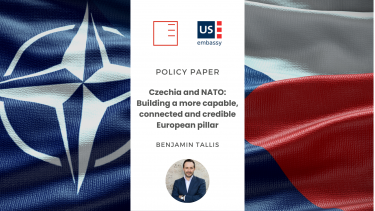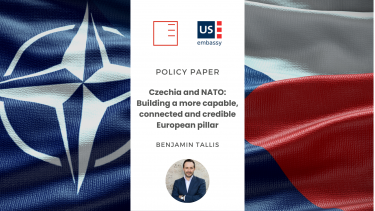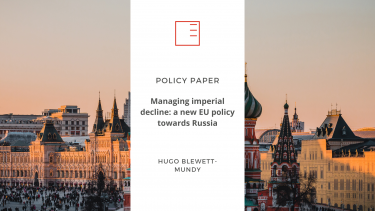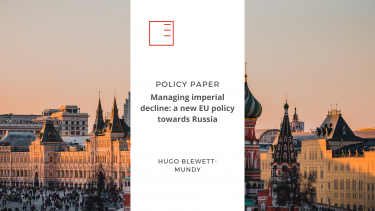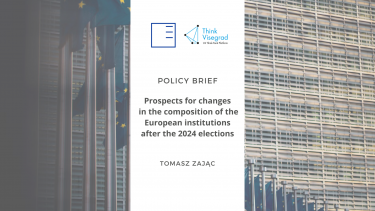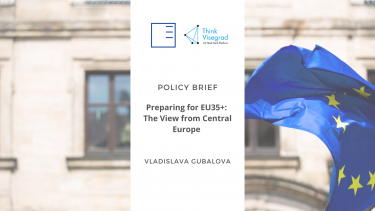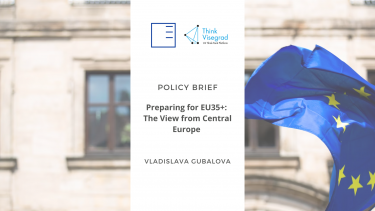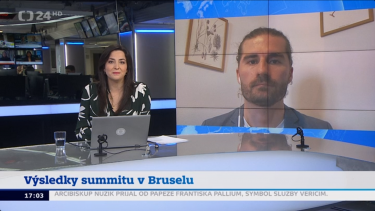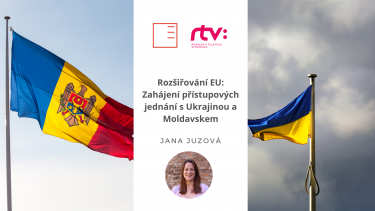Policy paper | Czechia and NATO: Building a more capable, connected and credible European pillar
CEE allies are key to building the capabilities-based, European Pillar NATO needs to enact genuine burden shifting and secure the alliance’s future. Dr Benjamin Tallis shows how Czechia can build on recent progress in defense procurement and increase its influence by prioritising the six elements Euro-NATO needs: core national war-fighting capabilities, logistics, military mobility, strategic enablers, air defence and long-range strategic strike.
Zjistit vícePolicy paper | Česko a NATO: Budování schopnějšího, propojenějšího a důvěryhodnějšího evropského pilíře
Spojenci ze střední a východní Evropy jsou klíčem k budování schopného evropského pilíře NATO, nezbytného pro zajištění budoucnosti aliance. Benjamin Tallis ukazuje, jak může Česko navázat na nedávný pokrok v oblasti obranných zakázek a zvýšit svůj vliv tím, že se bude soustředit na šest prvků, které Euro-NATO potřebuje. Těmi jsou základní bojeschopnost na národní úrovni, logistika, vojenská mobilita, strategické prostředky, vzdušná obrana a strategický úder dlouhého dosahu.
Zjistit vícePolicy paper | Managing imperial decline: a new EU policy towards Russia
Russia's full-scale invasion of Ukraine in February 2022 has shattered the post-Cold War international order built upon East-West interdependence and cooperation. The European Union (EU) - which had tried to pursue a strategic relationship with Russia after the collapse of the Soviet Union in 1991 - must now adapt to the geopolitical reality of Russian neo-revisionism. Hugo Blewett-Mundy, an Associate Research Fellow at EUROPEUM Institute, identifies four areas where the EU's policy towards Russia could evolve to confront this emerging security situation in Europe.
Zjistit vícePolicy paper | Řízení úpadku impéria: nová politika EU vůči Rusku
Ruská invaze na Ukrajinu v únoru 2022 v plném rozsahu zamíchala mezinárodním řádem po skončení studené války, postaveném na vzájemné závislosti a spolupráci mezi Východem a Západem. Evropská unie, která se po rozpadu Sovětského svazu v roce 1991 snažila navázat s Ruskem strategické vztahy, se nyní musí přizpůsobit geopolitické realitě ruského neo-revizionismu. Hugo Blewett-Mundy, výzkumný spolupracovník Institutu EUROPEUM, popisuje v práci čtyři oblasti, v nichž by se mohla politika EU vůči Rusku vyvíjet, aby lépe čelila této vznikající bezpečnostní situaci v Evropě.
Zjistit vícePolicy Brief | Prospects for changes in the composition of the European institutions after the 2024 elections
This policy brief analyses the prospective changes in the European Parliament (EP) composition following the 2024 elections. It reflects on the evolving political environment since 2019, highlighting shifts in party dynamics within the EP, such as the fragmentation of traditional party dominance and the emergence of new political alignments. Additionally, it explores potential reconfigurations in top EU positions post-elections and examines ongoing concerns regarding geographical representation within EU institutions, particularly the European Commission. Writes Tomasz Zając from the Polish Institute of International Affairs (PISM).
Zjistit vícePolicy Brief | Vyhlídky na změny ve složení evropských institucí po volbách v roce 2024
Publikace analyzuje možné změny ve složení Evropského parlamentu po volbách v roce 2024, zamýšlí se nad vývojem politického prostředí od roku 2019 a poukazuje na posuny ve stranické dynamice, jako je roztříštění tradiční stranické dominance a vznik nových politických uskupení. Kromě toho zkoumá možné změny v obsazení vrcholných pozic v EU po volbách a zabývá se přetrvávajícími obavami ohledně geografického zastoupení v institucích EU, zejména v Evropské komisi. Píše Tomasz Zając z Polského institutu mezinárodních vztahů (PISM).
Zjistit vícePolicy Brief | Preparing for EU35+: The View from Central Europe
Despite the historical support of EU enlargement policy by the Visegrad Four (V4), these Central European states are now faced with the challenge of reconciling their stances with the new realities of the process. As Ukraine and Moldova opened their accession negotiations, the EU seems to be torn on the questions associated with the future enlargement(s) - institutional reforms and changes within the EU budget. Transitioning from economic beneficiaries to potential contributors, the V4 states must evaluate the potential political and economic impacts of new members on both the EU and their domestic levels. Writes and proposes recommendations Vladislava Gubalova from GLOBSEC.
Zjistit vícePolicy Brief | Příprava na EU35+: Pohled ze střední Evropy
Navzdory historické podpoře politiky rozšiřování EU ze strany zemí Visegrádské čtyřky stojí tyto středoevropské státy před výzvou, jak sladit své postoje s novou realitou tohoto procesu. Vzhledem k tomu, že Ukrajina a Moldavsko zahájily přístupová jednání, je EU rozpolcena v otázkách spojených s budoucím rozšířením - institucionálními reformami a změnami v rámci rozpočtu EU. Při přechodu od ekonomických příjemců k potenciálním přispěvatelům musí státy V4 vyhodnotit potenciální politické a ekonomické dopady nových členů jak na EU, tak na své domácí úrovni. Píše Vladislava Gubalová z GLOBSEC.
Zjistit víceČT24 | Who will get the top jobs in the European Union?
EU leaders nominate Ursula von der Leyen to lead the European Commission again. Estonian Prime Minister Kaja Kallas, known for her support for Ukraine, is to lead EU's foreign policy. Both women have yet to be confirmed in top jobs by the European Parliament. In addition to the majority, support may also have to be sought from the conservatives or the Greens. Viktor Daněk, deputy director of EUROPEUM Institute, comments for ČT24.
Zjistit víceRTVS | EU Enlargement: Initiation of Accession Negotiations with Ukraine and Moldova
The European Union has initiated accession negotiations with Ukraine and Moldova. What does this mean for its inhabitants? How do the accession talks proceed? And what must the countries fulfill? Jana Juzová, a senior researcher at EUROPEUM Institute, comments for Slovak RTVS Television.
Zjistit víceStaroměstské náměstí 4/1
Praha 1 - Staré Město
110 00
tel.: +420 212 246 552
email: europeum@europeum.org
https://www.europeum.org
